How to Make Homemade Weed Killer, According to Lawn-Care Experts

Summer is here, and with any luck, the plants in your garden are by now lush and thriving. However, the same factors that help your favorite flowers grow—ample sunlight and rain and favorable soil conditions, to name a few—are the very same conditions that enable weeds to sprout up in droves. The good news is that there are several ways to rid your yard of these invasive plants, one option being to make homemade weed killer with just a handful of household ingredients. Compared with store bought solutions, these come with a few key benefits, gardening experts say.
RELATED: 7 All-Natural Ways to Keep Your Garden Pest-Free, According to Experts.
Why Is Homemade Weed Killer Better Than Store-Bought Options?
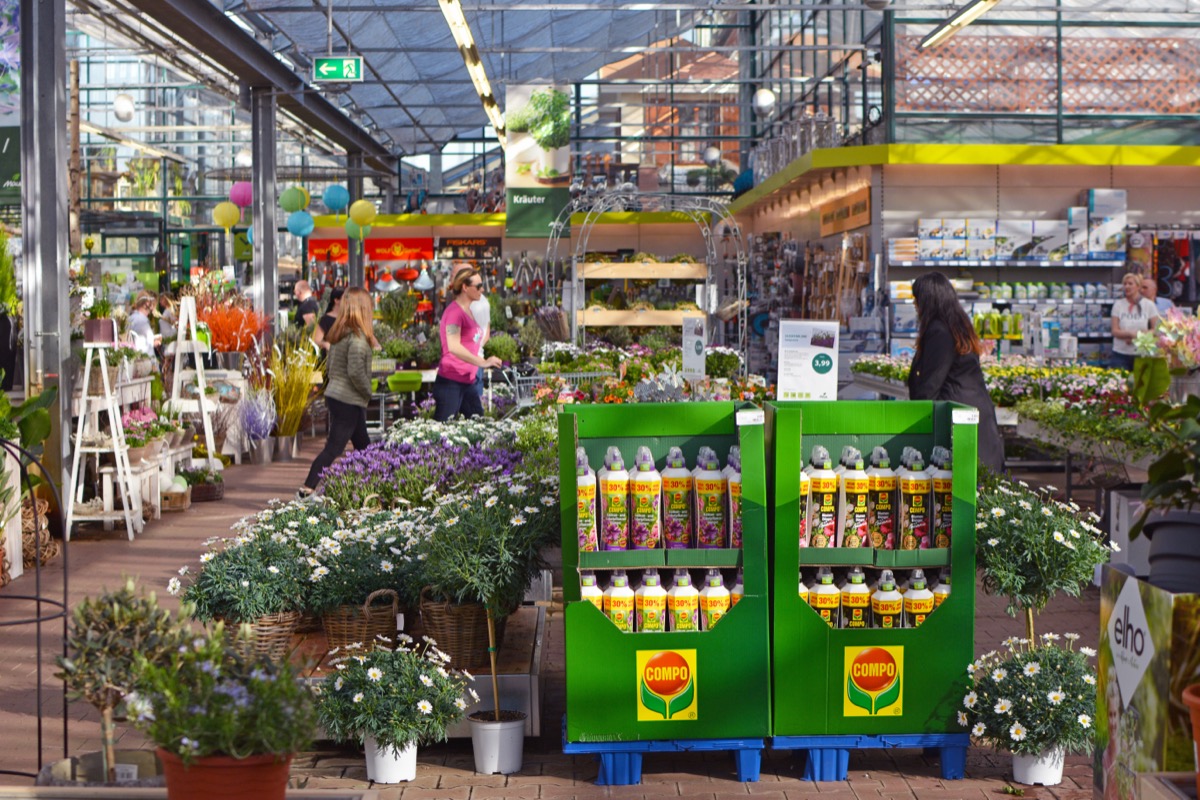
Ionel Giuran, a lawn care expert for Fantastic Gardeners, says there are benefits to both homemade and store-bought weed killers.
“There are organic herbicides you can purchase that often contain chemicals that already exist in nature and aren’t harmful to the environment. In contrast, some homemade weed killer recipes will require you to use synthetic ingredients, such as dishwashing soap or some other ingredients that are toxic if they’re ingested or go into the surrounding soil of your lawn or garden, such as borax and bleach,” Giuran explains.
He adds that if you’re dealing with larger and more persistent weeds, you’ll likely need to use a store-bought weed killer to prevent regrowth.
“Homemade ones are generally more effective only against small weed seedlings and don’t target the roots, which is essential for removing weeds entirely,” he says. “If you have to do that, I’d recommend looking for organic weed killers with a certification by the appropriate organization for your country.”
However, there are a few key reasons to opt for a homemade solution. These are some of the clearest benefits.
RELATED: 8 Easy Ways to Get a Lush Green Lawn Without Using Chemicals.
Health and safety

Chemical pesticides are toxic and can be harmful if ingested. This may be especially dangerous if you have children or pets in the home.
In fact, certain ingredients found in chemical weed killers have been linked to non-Hodgkins lymphoma, a form of cancer that begins in the lymphatic system. The International Agency for Research on Cancer (IARC) warns that those made with Glyphosate are “probably carcinogenic to humans.”
However, it’s worth noting that the EPA has challenged this assessment. They say the chemical does not pose a risk to public health when used in accordance with its current label, though they acknowledge that it can be harmful to pets if swallowed.
For some people, this is enough reason to opt for homemade weed killers rather than store-bought options.
Cost effectiveness

Rob Palmer, brand president of Lawn Squad, says you can also save money by making your own natural weed killer, since you are likely to already have most of the ingredients you’ll need.
“While both options have their pros and cons, homemade weed killers are certainly more cost-effective,” he tells Best Life.
Environmental friendliness
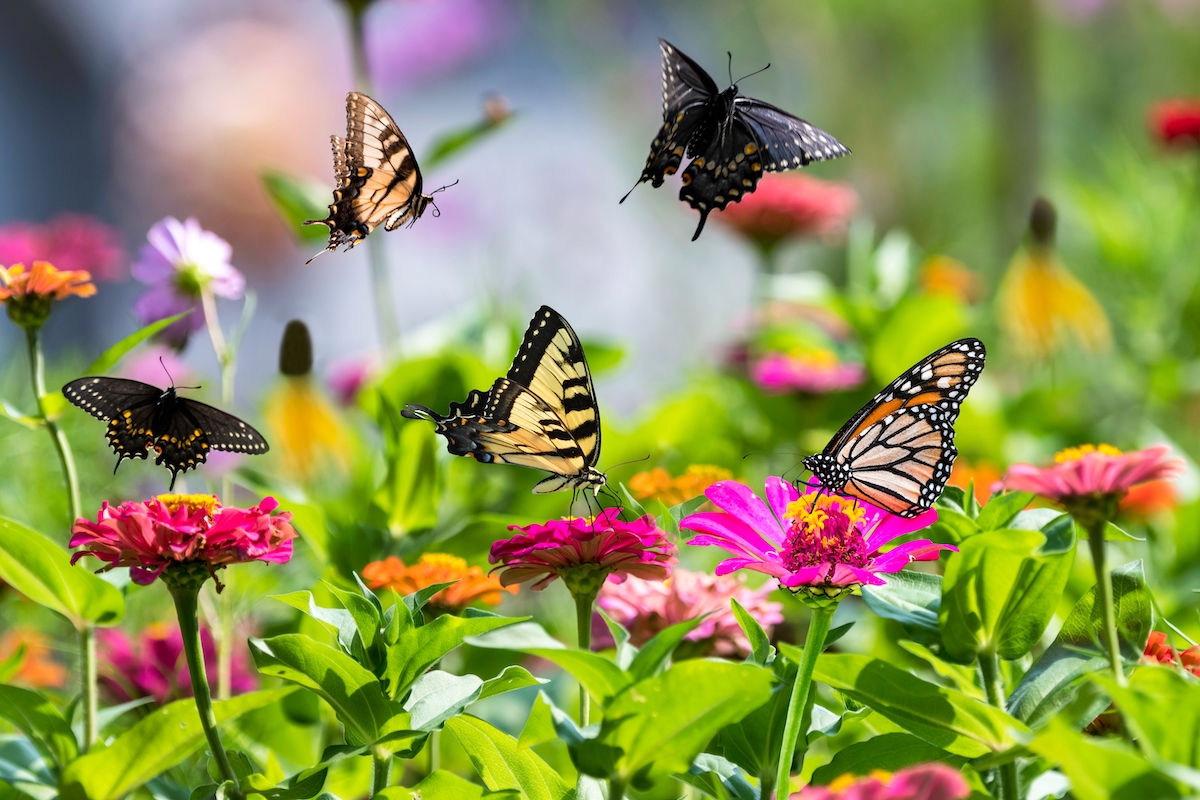
Many people also choose to make DIY weed killers in an effort to be more environmentally friendly and sustainable and to lessen their reliance on harsh chemicals.
“Most homemade weed killers cause minimal harm to the environment unless you’re using bleach,” explains Giuran. “They’re typically made of natural ingredients that break down more quickly compared to commercial ones, which reduces the risk of residual chemicals leaking into the soil or water systems.”
He says making your own weed killers at home can help preserve biodiversity, protect beneficial insects, birds, and other wildlife that visit your garden, and maintain a healthy ecosystem in your outdoor space.
Soil health
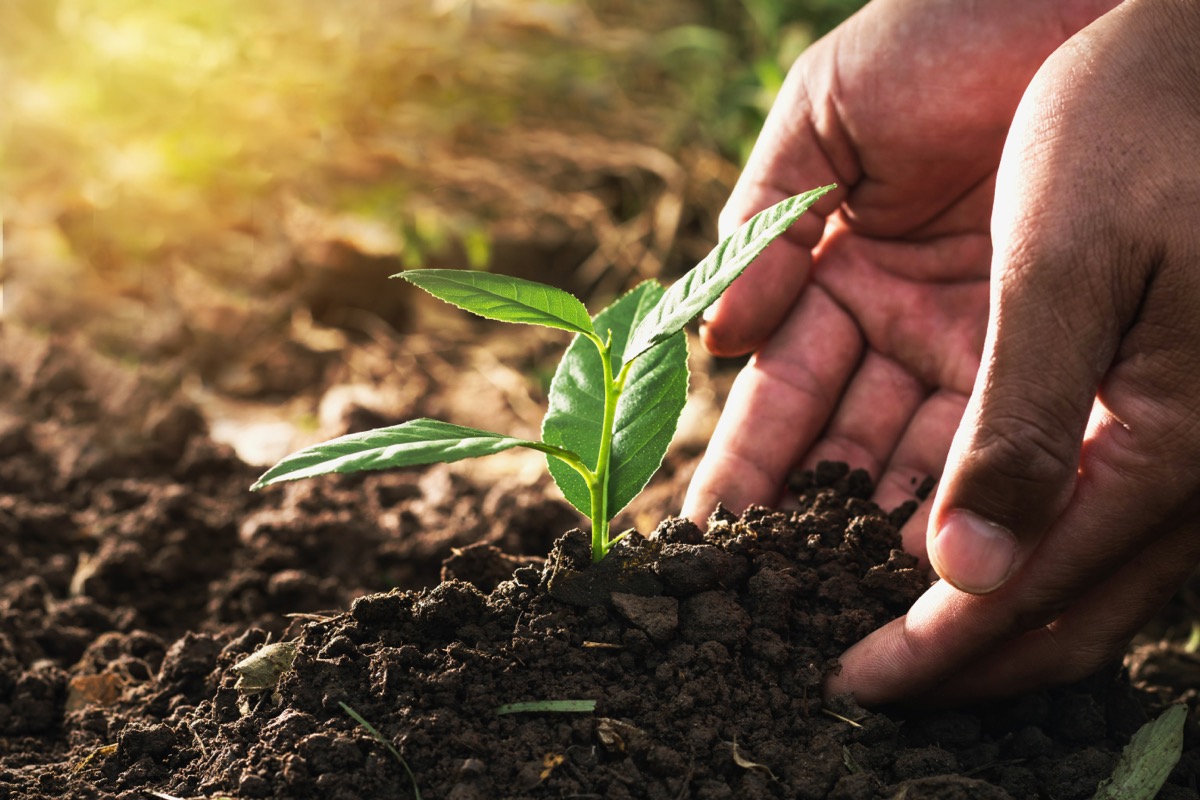
When used correctly, homemade weed killers are typically less disruptive to your soil health and more beneficial to soil microorganisms, such as earthworms, says Giuran.
“They allow for better nutrient cycling and promote a healthier soil ecosystem. Over time, this can improve your soil’s structure, its water retention, and overall plant health,” he tells Best Life.
“The ingredients in homemade solutions also tend to break down more quickly and naturally in the environment, reducing the long-term impact on your lawn’s soil,” agrees Palmer.
(Somewhat) targeted weed control
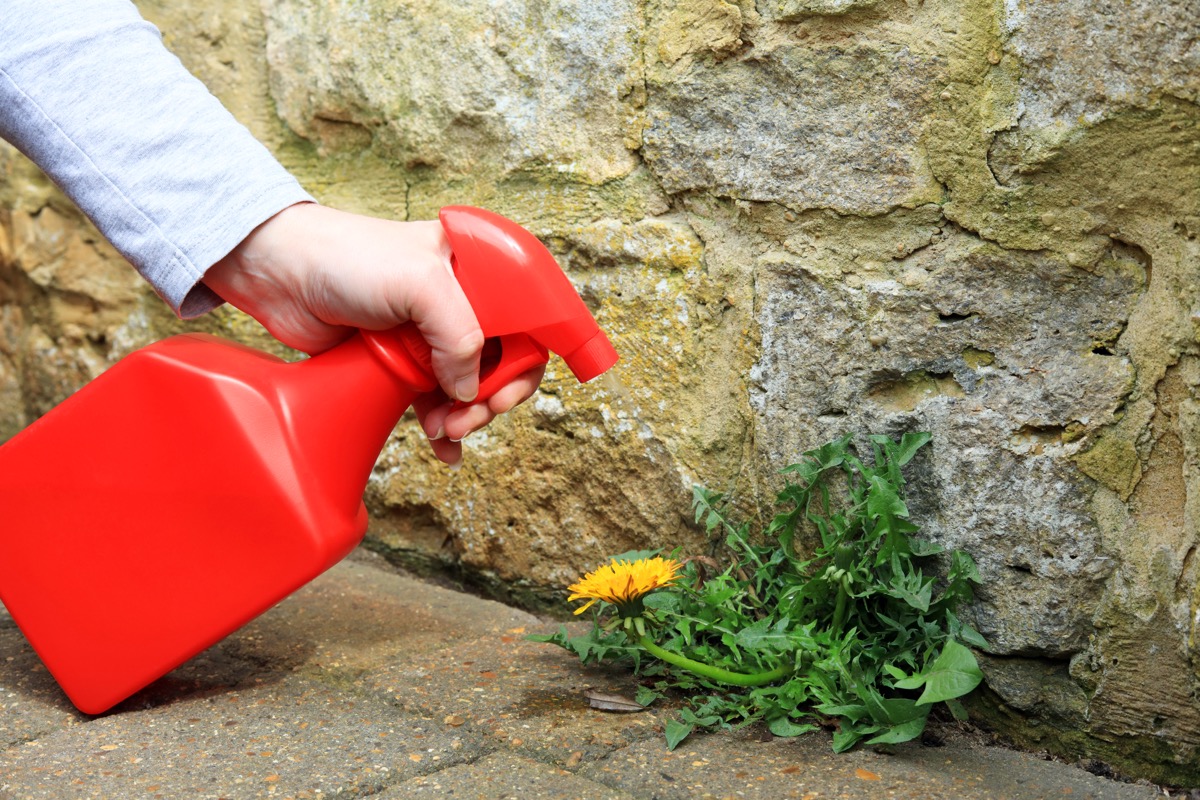
Giuran says DIY weed killers may also offer more targeted weed control when deployed strategically.
“Homemade weed killers can often be used to target the foliage of the weeds rather than the entire plant, which allows for more selective control. This targeted approach can help minimize damage to un-targeted plants in your garden or lawn and reduces the risk of unintentional harm to nearby vegetation,” he explains.
RELATED: What Is Mulch, and How Can It Transform Your Garden Into a Paradise?
How to Make Homemade Weed Killer
If you’d rather avoid store-bought weed killers, there are some chemical-free ingredients that will help keep those pesky plants at bay—and you most likely already have them in your home. You can use these ingredients individually or combine them in a spray bottle to start getting rid of weeds in a matter of hours.
Vinegar
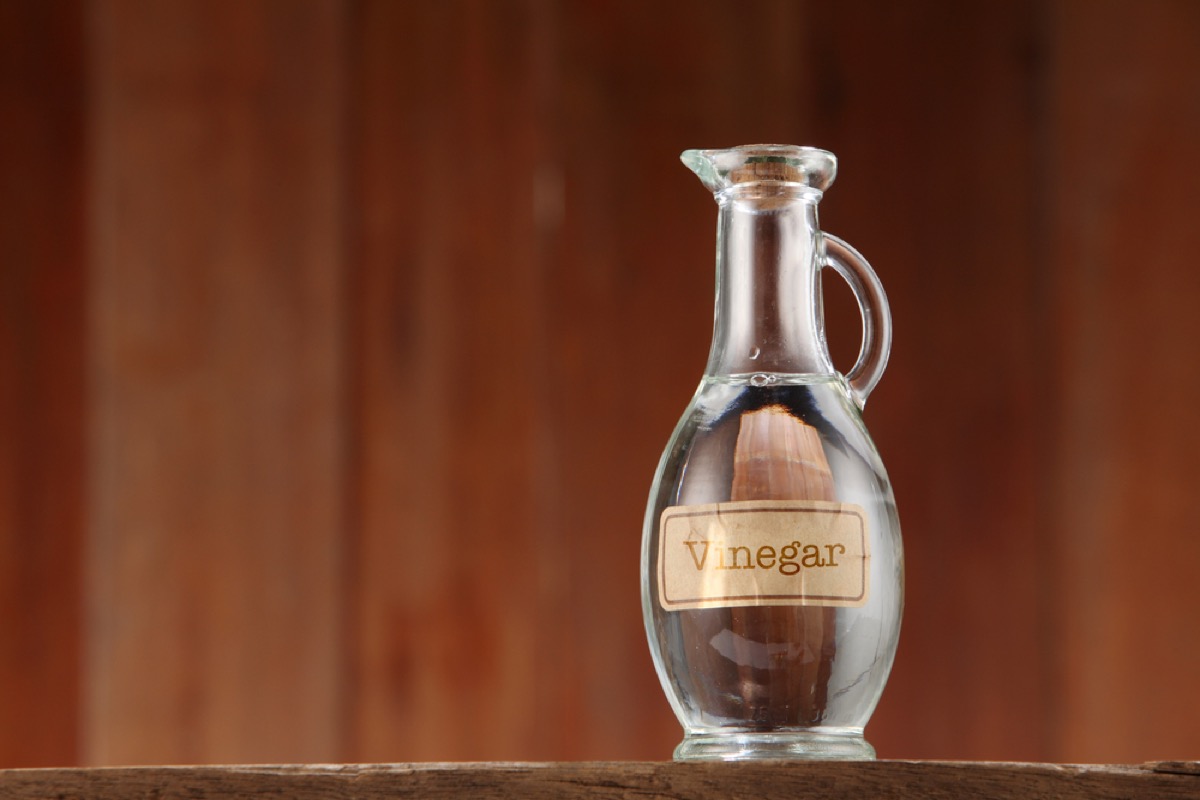
If dandelions or other overgrown weeds are taking over your garden, spraying vinegar can help fight back. That’s because vinegar contains acetic acid, a byproduct of fermentation, which helps to dry out the leaves of plants.
Chris Ramos, a representative for Blain’s Farm & Fleet, says that both white vinegar and apple cider vinegar are up to the task for smaller, less developed plants. “Just fill up a spray bottle, and spray it directly onto the weeds. Target the flower and stem for the vinegar to seep into the roots,” he recommends.
However, Giuran notes that “household vinegar has an acetic acid of five percent, and this is only strong enough to kill very young weed seedlings with only one or two leaves.”
For larger, more established weeds with three or more leaves, “you’ll need to use a horticultural-grade vinegar that has higher acetic acid concentrations of no more than 20 percent,” he says.
Salt or Epsom salt
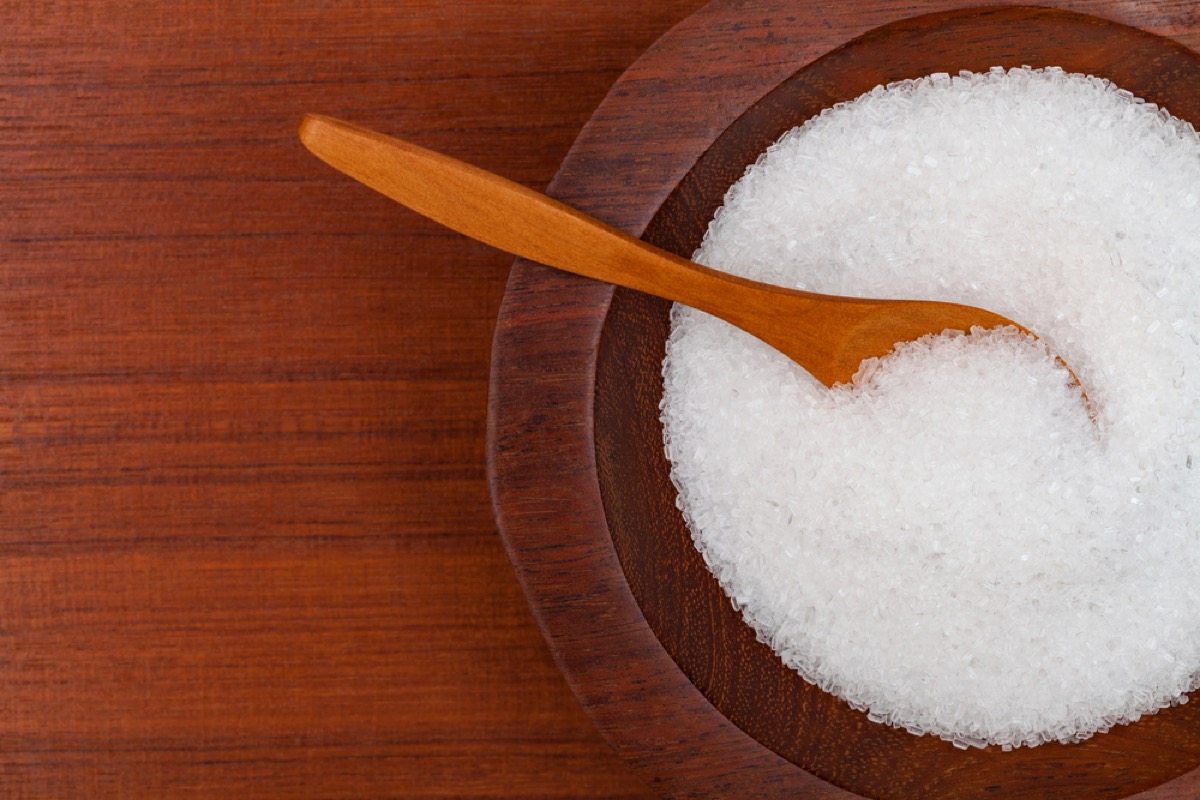
Next, table salt and Epsom salt can both kill weeds. However, if salt is applied incorrectly, it will alter the soil’s pH balance and affect the growth of future plants.
“This method is ideal for sidewalk cracks or garden pathways where no plants…are desired,” says Ramos. “Sprinkle rock salt sparingly, or use a mixture of one cup of salt and two cups of boiling water in a spray bottle for a homemade weed killer. Make sure you keep it away from your garden beds to protect your desirable plants.”
Boiling water
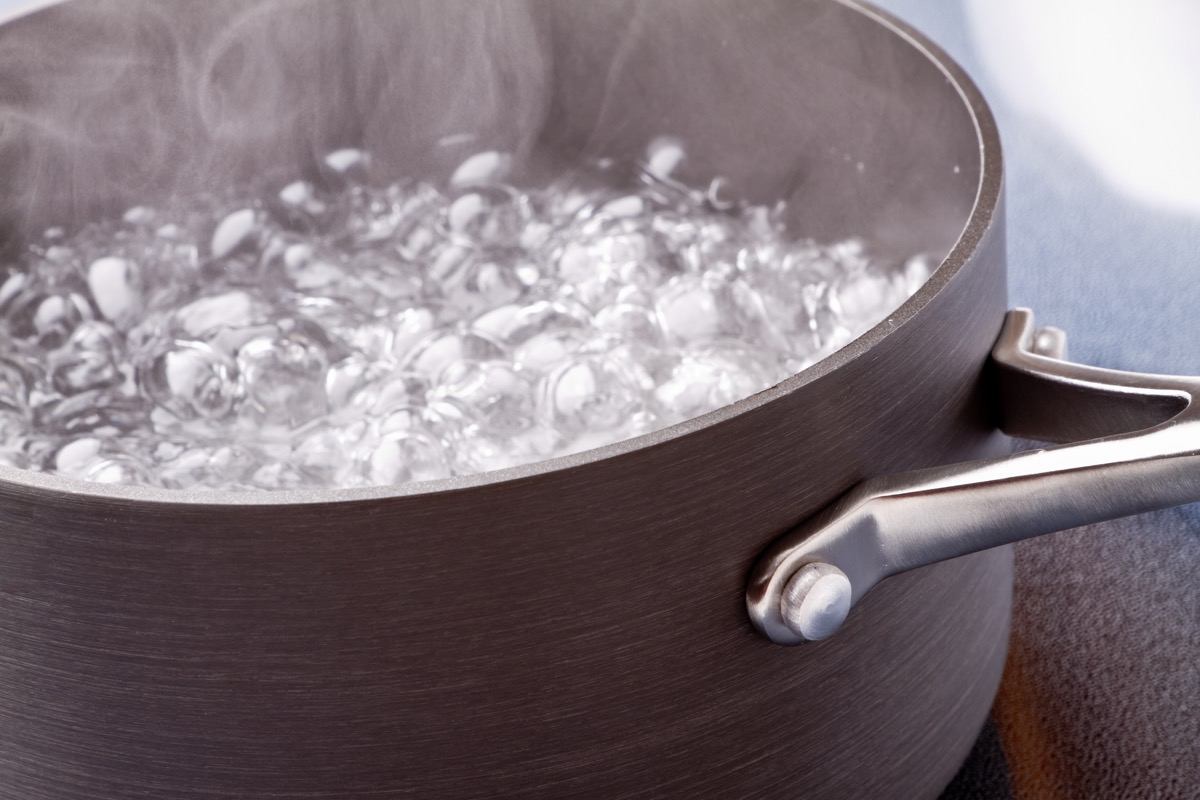
You can also use boiling water to rid isolated areas of weeds—for instance, a gravel driveway with no nearby plants.
“Fill up your tea kettle and douse the weeds with boiling water. Just be careful not to get the hot water on any of your garden plants. The hot water will kill weeds, as well as any other plants it touches,” Ramos tells Best Life.
Dish soap
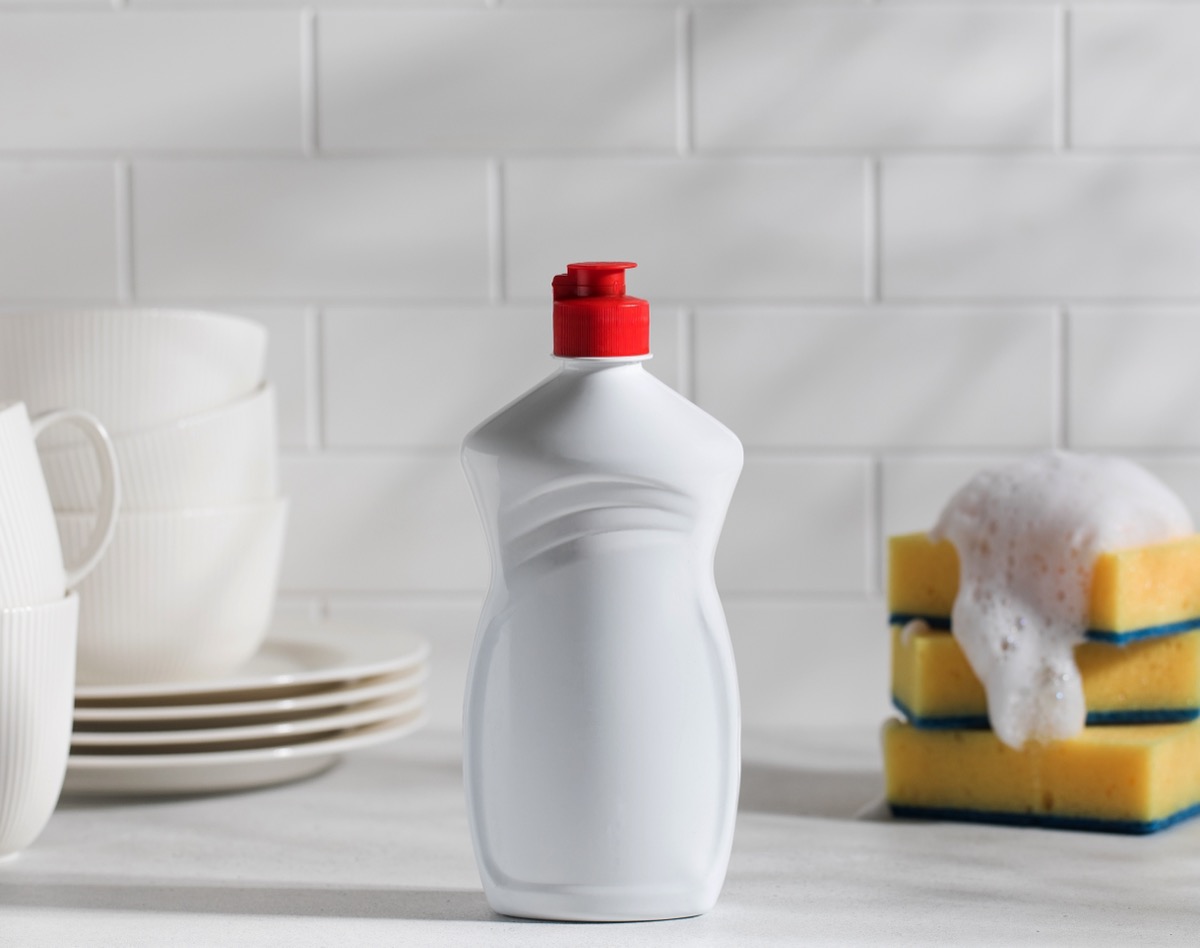
Putting dish soap in your homemade solution can increase the effectiveness of weed control, as it can help to better adhere the spray mix to the weeds, Palmer notes.
However, it’s important to be careful when using dish soap as a weed killer—water runoff after rain can transport it to your other plants, causing damage to your garden.
Baking soda
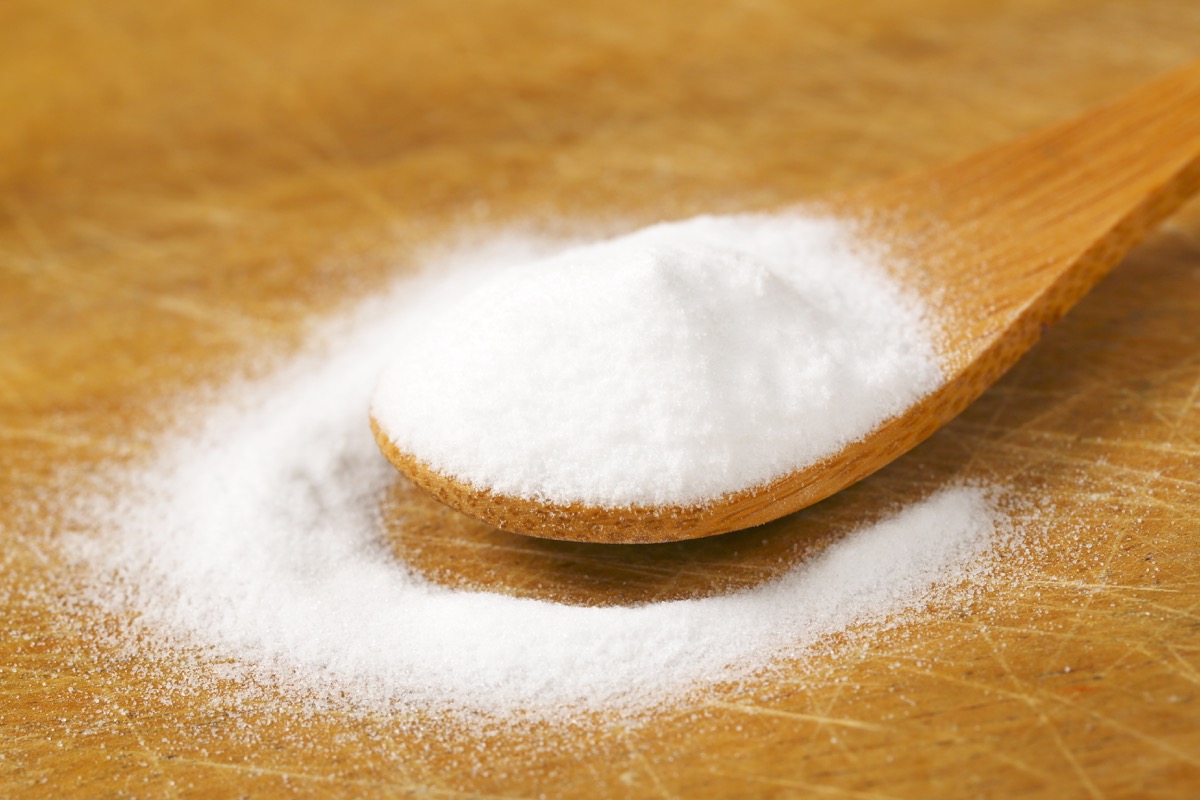
Baking soda can be used as a standalone homemade weed killer or as part of a sprayed solution that combines several of the ingredients listed above.
Palmer notes that using it on its own is most effective on small weeds, “particularly in areas like sidewalk cracks and crevasses.”
“The salt in baking soda dries out the plant, making it difficult for that plant to uptake moisture, resulting in death,” he explains.
“If you are making a solution to be sprayed onto the weeds, using roughly one cup of baking soda per one gallon of water should make a mixture potent enough for weed control,” Palmer adds. “For small weeds, a light sprinkling of baking soda to coat the leaves and stems without completely burying the weed should be sufficient, and for bigger weeds, a heavier application may be necessary.”
RELATED: The Best Natural Insecticides to Help Save Your Garden.
What Can I Use to Prevent Weeds From Growing Back?
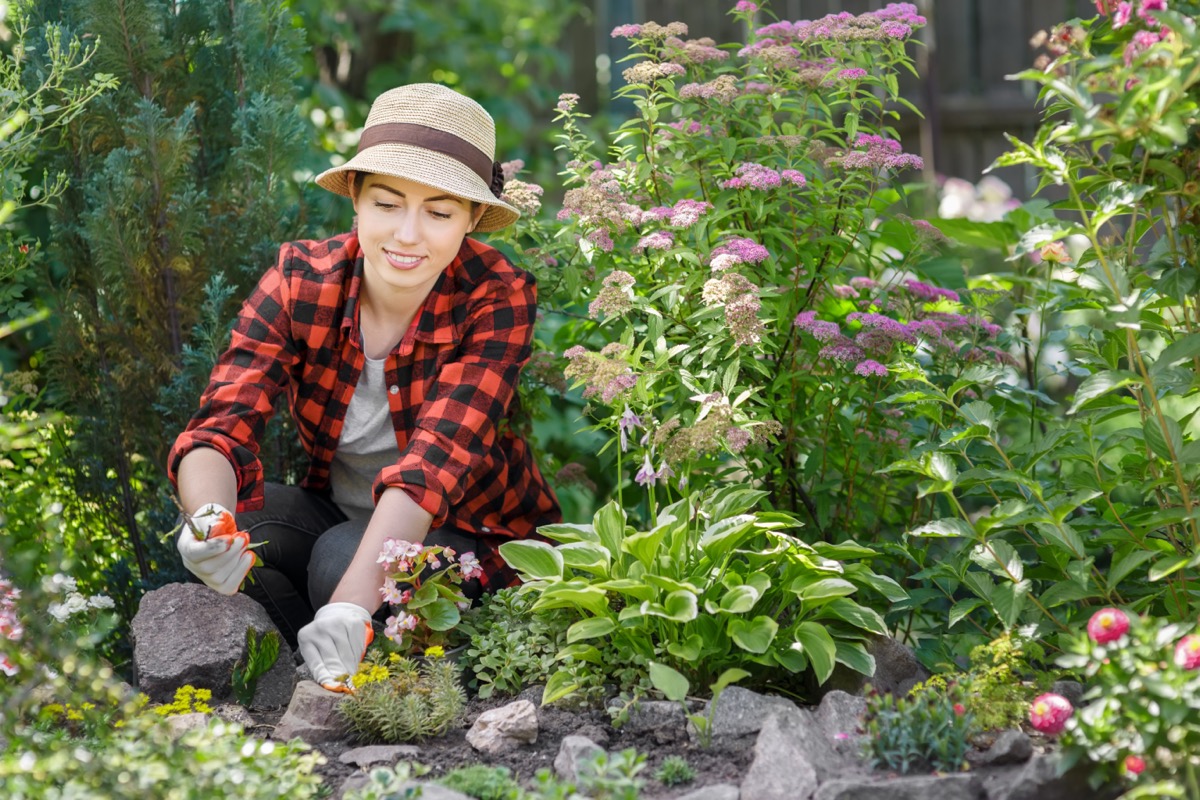
Regardless of which type of weed killer you choose, you’ll need to take a few additional measures to ensure that your yard or garden is weed-free.
“Besides these homemade remedies, pulling weeds is always a good practice to help prevent the over-accumulation of weeds in the lawn,” says Palmer. “Hand pulling weeds while they are limited in number and before they produce seed can help prevent future weed incursion and the need for intense herbicide treatments.”
He adds that maintaining your lawn can also help prevent weed growth: “You can maintain a thick and healthy lawn through fertilization, aeration, and overseeding. This may be enough to limit the amount of weed spraying necessary to keep weeds away from your lawn.”
If weeds remain despite those lawn care practices, you can manage them through “pulling or physical removal, or chemical control methods, like pre- and post-emergent weed control products,” he notes.
Conclusion
If your garden is being overtaken by weeds, there are quite a few options at your disposal to control them—and the best approach may combine several methods at once.
The experts emphasize that homemade weed killers alone are not a one-and-done, long-term solution. “For this reason, it’ll be better if you develop a more comprehensive prevention weed control strategy and stop them from taking root in the first place,” says Giuran.